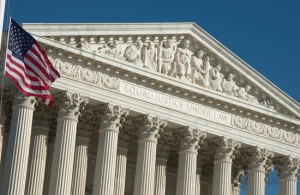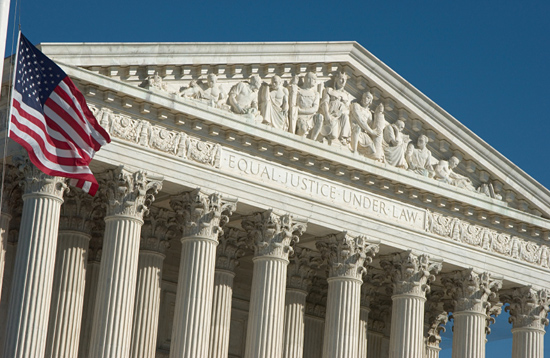 By David G. Savage, Tribune Washington Bureau –
By David G. Savage, Tribune Washington Bureau –
WASHINGTON — Two years ago, the Supreme Court said corporations were like people and had the same free-speech rights to spend unlimited sums on campaigns ads. Now, in a major test of human rights law, the justices will decide whether corporations are like people when they are sued for aiding foreign regimes that kill or torture their own people.
It would “create a weird paradox” if the corporations are people when funding campaigns but not when they violate human rights, said Peter Weiss, vice president of the Center for Constitutional Rights in New York.
At issue is an obscure 18th century law unearthed by human rights lawyers in the 1980s and increasingly used against U.S. corporations whose work overseas has entangled them with brutal regimes.
On Tuesday, the justices will hear an appeal of a suit accusing Royal Dutch Petroleum and its Shell subsidiary in the United States of aiding a former Nigerian regime whose military police tortured, raped and executed minority residents in the oil-rich delta. The victims included famed Nigerian author and environmental activist Ken Saro-Wiwa.
It is one of many long-running claims against multinational companies. Exxon-Mobil is fighting a suit that alleges its security forces committed murder and torture against Indonesian villagers a decade ago. Rio Tinto, the British mining company, was sued in California for alleged atrocities in the late 1980s carried out against the natives of Papua New Guinea.
All the suits rely on the Alien Tort Statute of 1789, which authorized federal courts to decide claims brought by an “alien” for a violation of the “law of nations.”
No one has been too sure what that phrase means. In its only major ruling on the law, the Supreme Court cautioned that it applied only to “a very limited category” of well-recognized violations of international law. Crimes such as torture, enslavement and genocide could qualify.
Corporate lawyers chafe at these claims. They say it makes no sense to allow foreigners to sue in U.S. courts for actions that took place on foreign soil and under the auspices of foreign governments. Critics also say U.S. officials would not take kindly to foreign suits against American corporations if, for example, they were held liable for killing innocent people in Pakistan or Yemen because they had supplied drones or cruise missiles to the U.S. government.
Two years ago, corporate lawyers won the ruling they hope could end most such claims. The U.S. Court of Appeals in New York, in a 2-1 decision, threw out the suit against Royal Dutch Shell and ruled corporations were not liable for violations of international law. Its judges said states and state actors were responsible for the violations of international law, such as the Germans who were punished at Nuremberg for the crimes of Nazi Germany.
Obama administration lawyers joined human rights activists in appealing this decision to the Supreme Court.
“It would send a very bad message if we give corporations a blanket immunity if they engage in universally condemned human rights abuse,” said Jennifer Green, a University of Minnesota law professor.
On the other side are not just American corporations but also the governments of Britain, the Netherlands and Australia. They say international law does not call for liability against companies, and U.S. courts have no business deciding cases involving foreign companies operating in foreign lands.
The case is Kiobel vs. Royal Dutch Petroleum.







